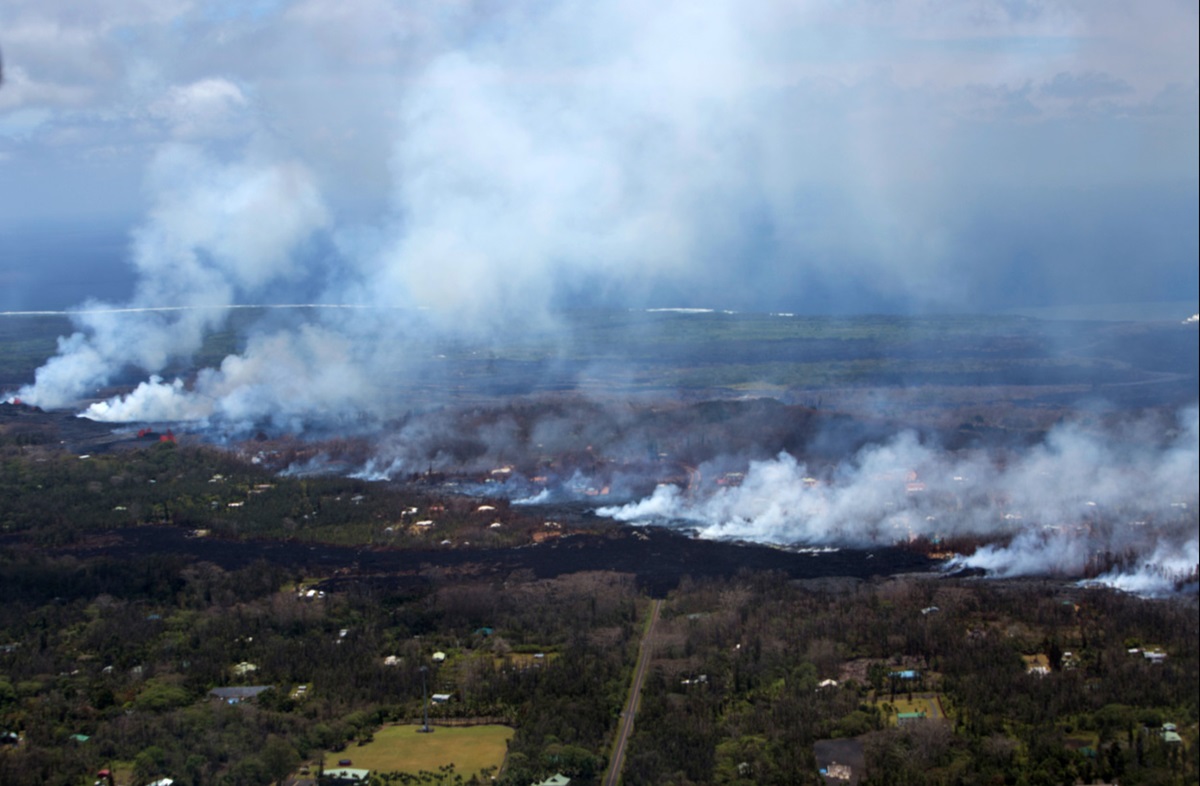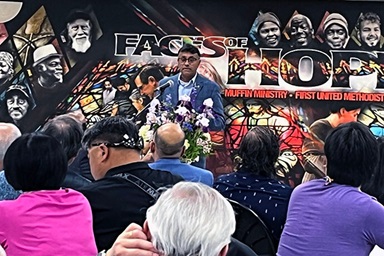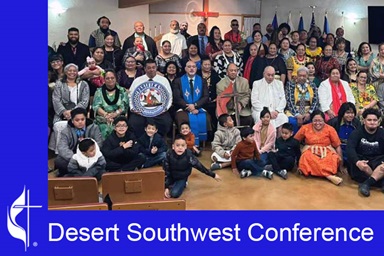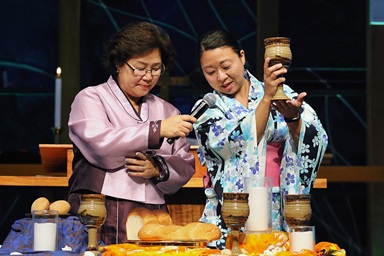The Hilo United Methodist Church has helped three families who attend the church and lost homes during the eruption of the Kilauea Volcano.
The eruption that began in May 2018 has destroyed about 700 homes in the Kapoho and Leilani areas in Hawaii.
According to the Rev. Malyong Yi, pastor of Hilo United Methodist, two church families had to evacuate their homes. A third member’s vacation home in Kapoho was buried 50 feet below the ground by volcanic lava.
“We were shocked and saddened, so we prayed hard for the three families and for the Hilo community,” Yi said. “The church family provided them food and housing through this crisis.”
There was no fund to help the families at that time, but Yi said the congregation stepped up. “I am amazed by the congregation’s prompt love, care for and response to their church families’ need. They have been working very hard to help and support that their needs,” he said.
The eruption affected the Hilo congregation deeply. Since a house cannot be rebuilt on top of lava, it means the families have lost not only their homes but also their land.
“That means they lost everything,” Yi said, “but our congregation has demonstrated Christian love in the midst of tragedy.”
Ross Stadnyk, a victim of the volcanic lava, is a member of the church. “We once again experienced the unpredictability of life. But we learned that the grace of God is still there. I am impressed by their strong faith,” he said.
Stadnyk said that when he was told to pack and leave his home on short notice by the police, he looked around and realized there was nothing he wanted to take: “They are all stuff that I may not need.”
Throughout the upheaval, the affected families of the church made a strong confirmation of their faith.
Yi said he was deeply moved by member Dale Oshima.
Oshima said he lost everything but his faith. “Nothing can take away from my trust in God. I have learned that the Lord works through people and miracles do happen in the most unexpected of ways and is happening in our new life in Hilo.”
Oshima’s family is living with another church member while they look for a new home.
“The church was and still is with us with their presence, prayers, their love and concern and help when needed. It truly is a blessing and I’m so grateful to be able to have the necessities of daily living,” Oshima said.
Hilo United Methodist member Robert G. Mitchel reflected on the loss of his family’s vacation home, which was completely buried by lava: “The house has been a family retreat in Kapoho since 1963. It was a small, rustic house but located right on a beautiful swimming lagoon. Mom always welcomed friends and community members, including folks from our church, over the years.”
Mitchell shared memories of celebrating Thanksgiving and cookouts with friends at the Kapoho home and said its loss was “not unlike losing a member of the family ... but now it is beautiful memories for us.”
Robert’s mother, Josephine Mitchel, said she still had the wonderful memories of time spent in the house.
The Hilo United Methodist Church was founded by Korean Sugar Plantation workers in 1910, and the language of worship changed from Korean to English in 1945 after the Pearl Harbor. The racial diversity gradually changed as Koreans died or moved away from Big Island (Hawaii). More English-speaking people — such as second-generation Koreans, Japanese, Chinese, Pacific Islanders and mixed races including Caucasians — began to attend the worship after 1945. Now Hilo United Methodist Church is one of the most diverse congregation in The United Methodist Church.
Kim is the director of Korean/Asian news for United Methodist News Service in Nashville. Contact him at 615-742-5470 or newsdesk@umnews.org. To read more United Methodist news, subscribe to the free Daily or Weekly Digests.
Like what you're reading? Support the ministry of UM News! Your support ensures the latest denominational news, dynamic stories and informative articles will continue to connect our global community. Make a tax-deductible donation at ResourceUMC.org/GiveUMCom.




